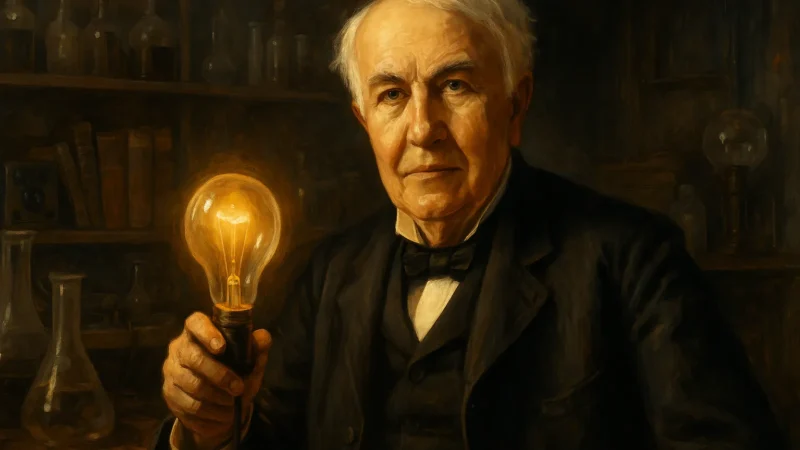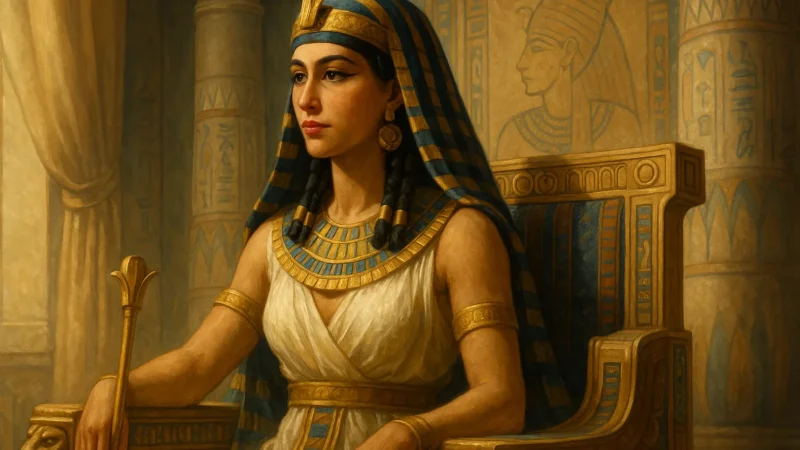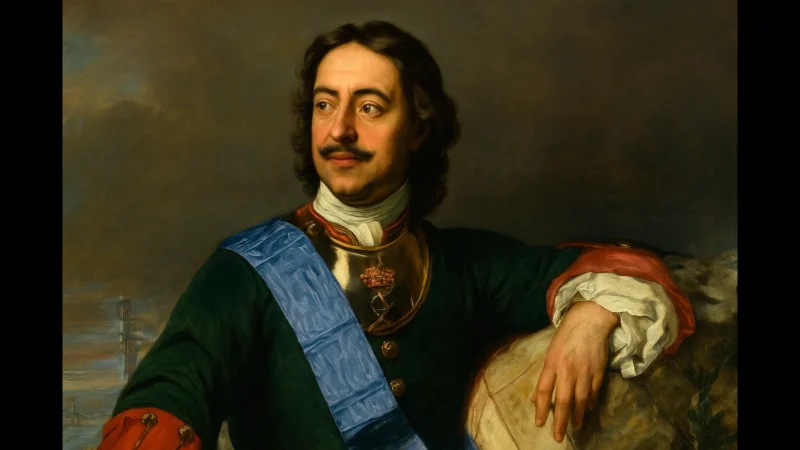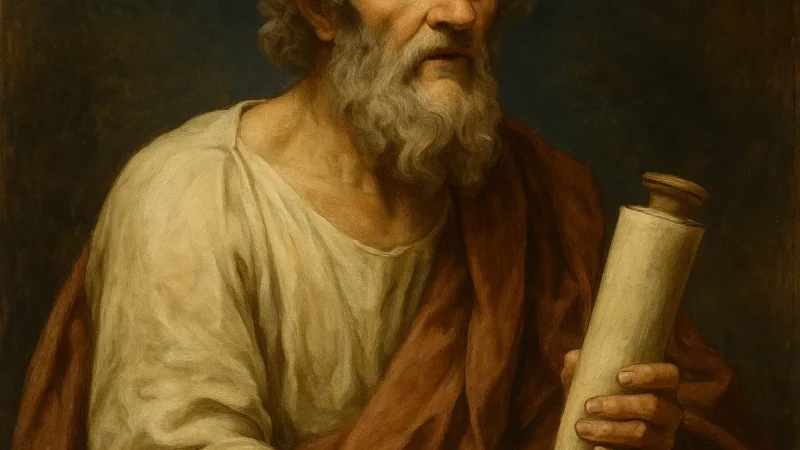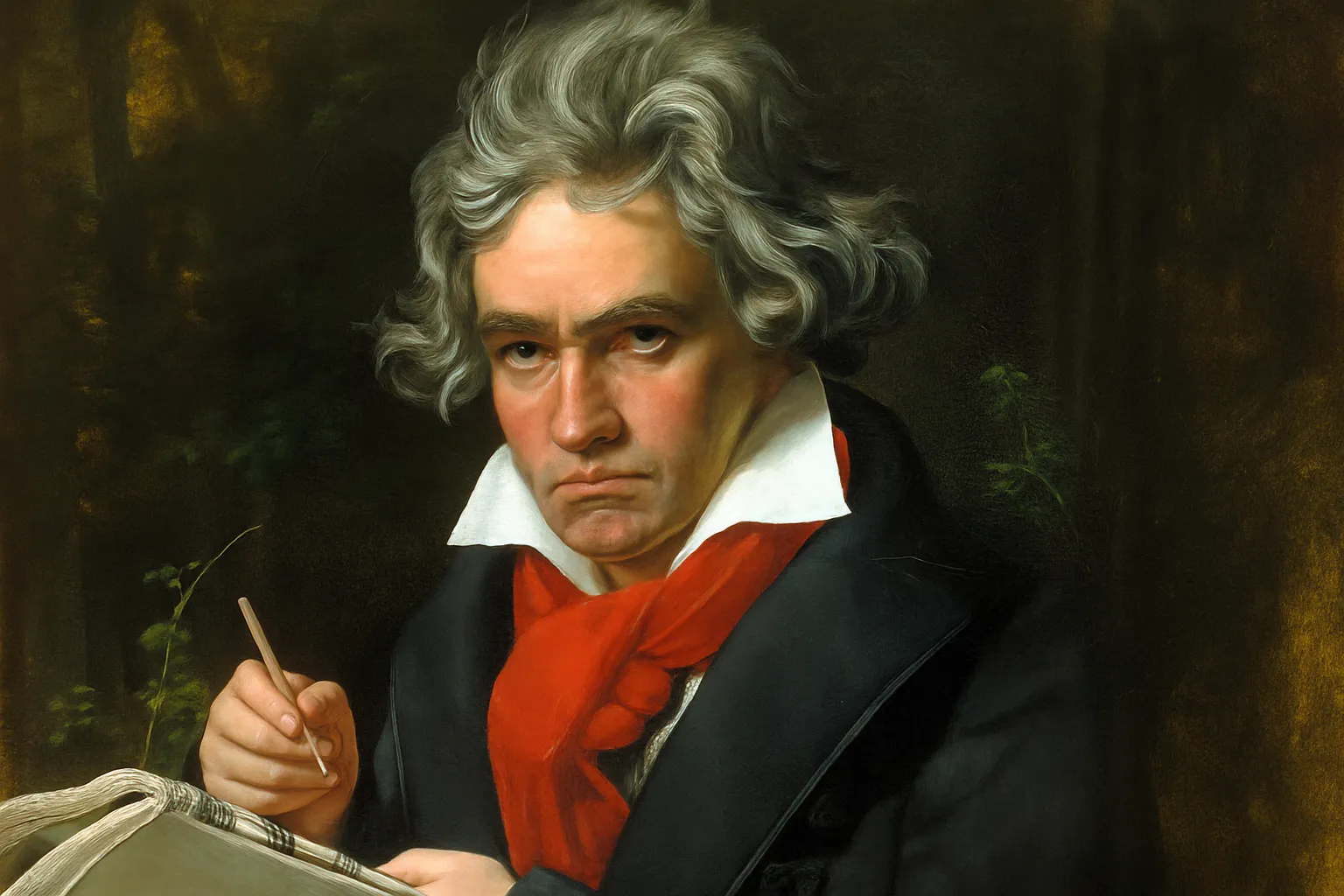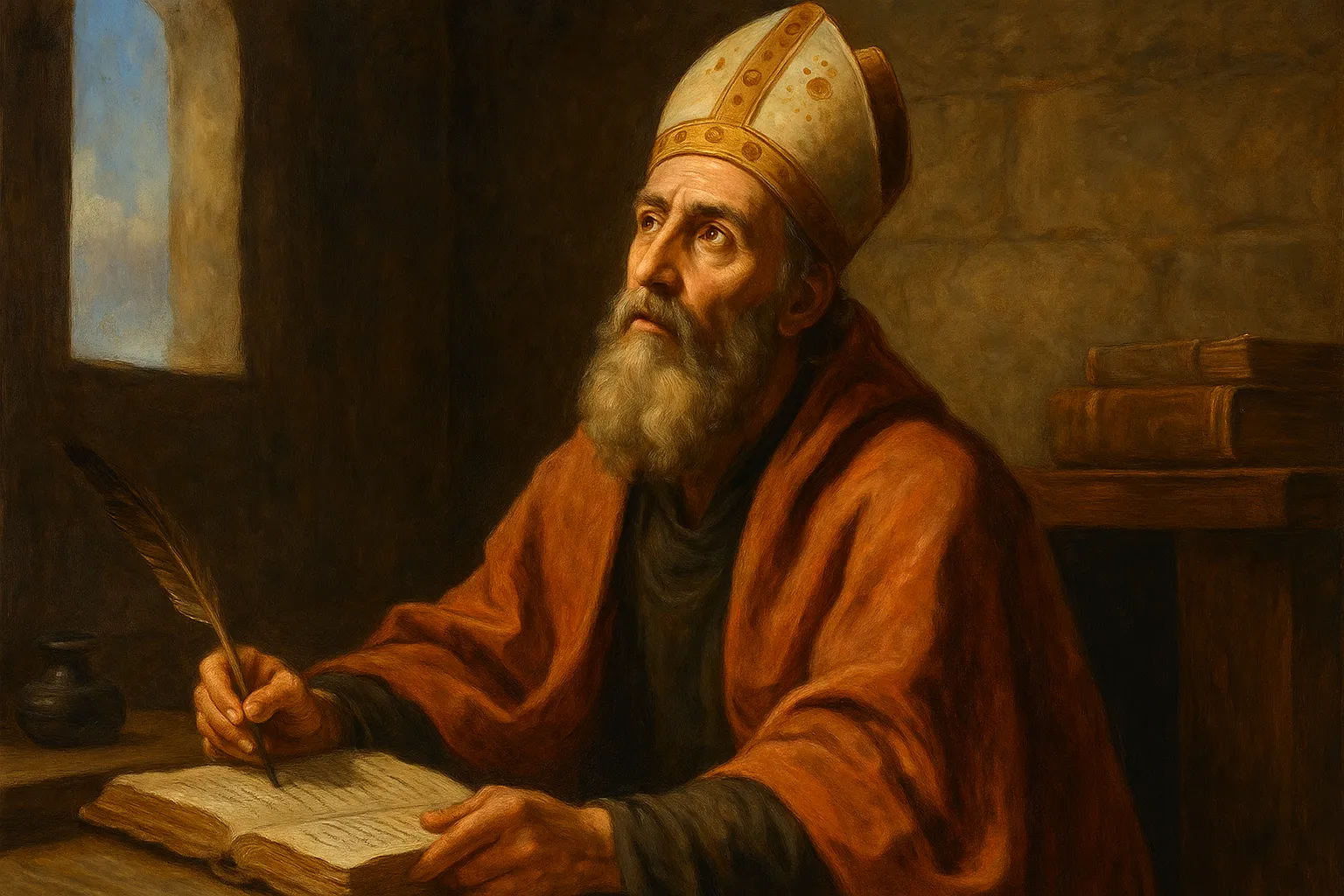Biography of Martin Luther King Jr.: The Voice of Nonviolent Revolution
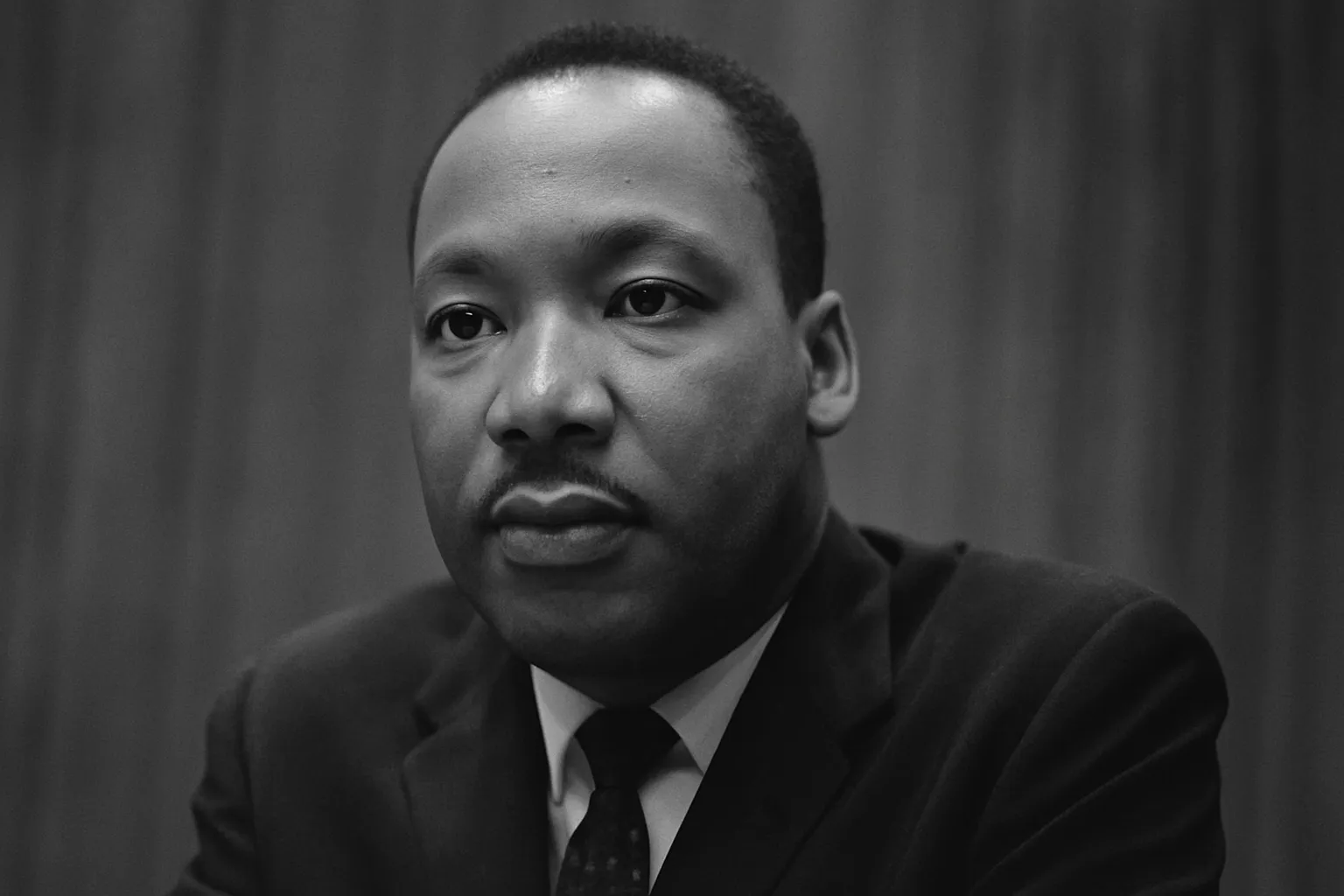
Few figures in modern history have so powerfully symbolized the struggle for justice, equality, and peace as Martin Luther King Jr. His leadership in the American Civil Rights Movement transformed the moral landscape of the United States, inspiring millions around the world. Through nonviolent protest, persuasive oratory, and unwavering faith, King challenged the systemic racism and inequality that plagued American society for centuries.
His life was one of purpose, conviction, and sacrifice. Though assassinated at just 39 years old, his impact continues to resonate across generations, making him one of the most enduring symbols of human rights in the modern era.
A Childhood in the Segregated South
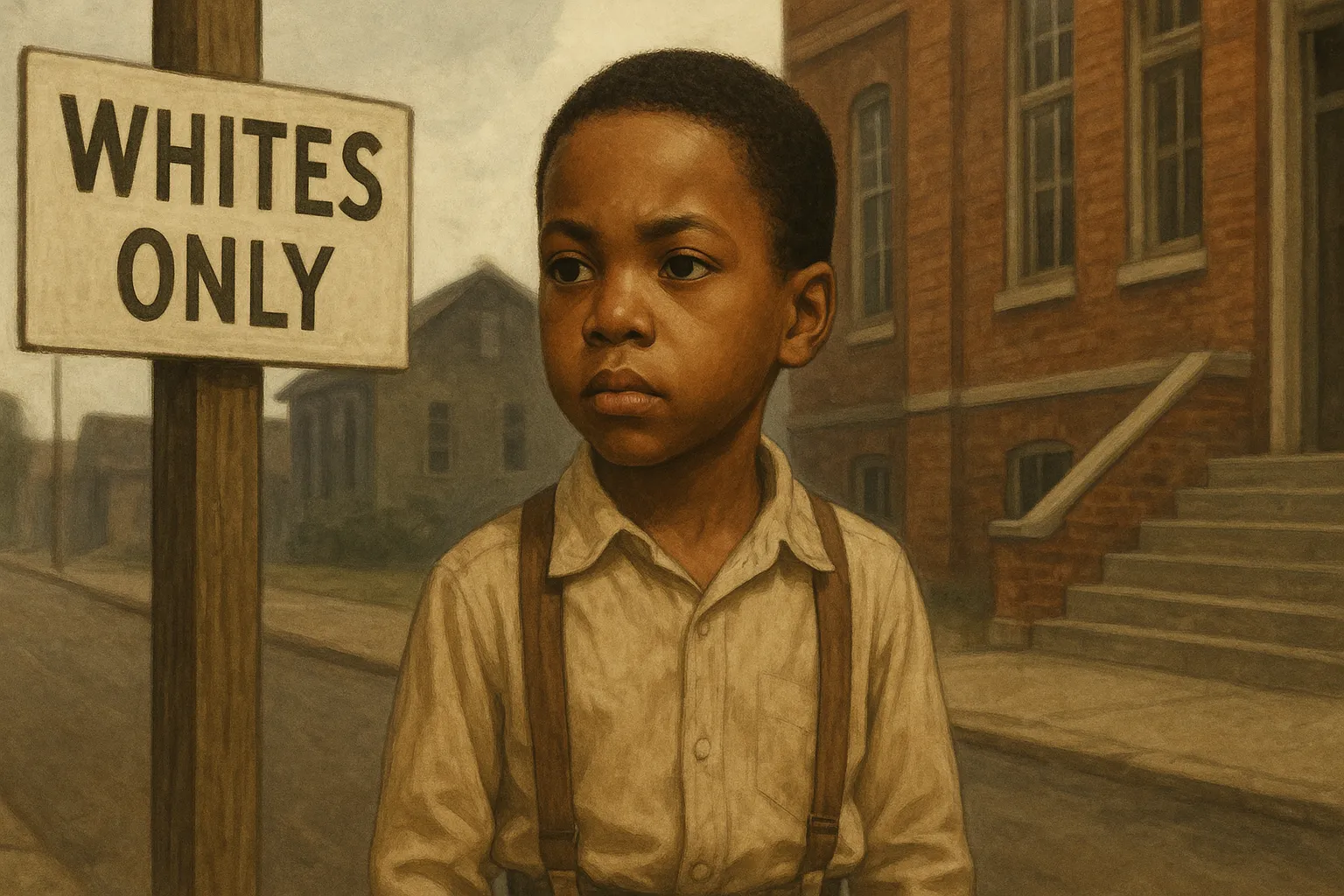
Martin Luther King Jr. was born on January 15, 1929, in Atlanta, Georgia, into a family deeply rooted in the African-American Baptist church. His father, Martin Luther King Sr., was a prominent pastor, and his mother, Alberta Williams King, was a talented musician and schoolteacher.
Growing up in the Jim Crow South, King experienced the harsh realities of racial segregation and discrimination early on. Despite being shielded by his family’s stable and supportive environment, young Martin could not escape the brutal system of institutionalized racism.
At the age of six, King encountered his first personal experience with racism when white childhood friends were forbidden to play with him. These early experiences planted seeds of consciousness that would grow into his lifelong mission for justice.
King excelled academically, skipping both the ninth and twelfth grades. He entered Morehouse College at just 15 years old, following in the footsteps of his father and grandfather. There, he studied sociology and was influenced by theologian Benjamin Mays, who challenged him to see Christian faith as a tool for social transformation.
In 1948, King graduated from Morehouse and then pursued further studies at Crozer Theological Seminary in Pennsylvania, where he earned a Bachelor of Divinity degree. His academic journey culminated with a doctorate in systematic theology from Boston University in 1955.
Theology, Philosophy, and Nonviolence
While studying at Crozer and Boston University, King immersed himself in the works of great thinkers who would shape his philosophy:
-
Mahatma Gandhi’s nonviolent resistance deeply influenced his strategic approach to social change.
-
Henry David Thoreau’s Civil Disobedience provided a philosophical framework for peaceful protest.
-
Reinhold Niebuhr’s Christian realism and Walter Rauschenbusch’s social gospel helped King connect Christian theology to real-world activism.
King married Coretta Scott in 1953, who would become not only his life partner but also a steadfast ally in the movement. They had four children together.
Armed with a powerful blend of theological conviction, moral courage, and intellectual clarity, King was ready to take on the monumental challenges of his time.
A Movement Begins
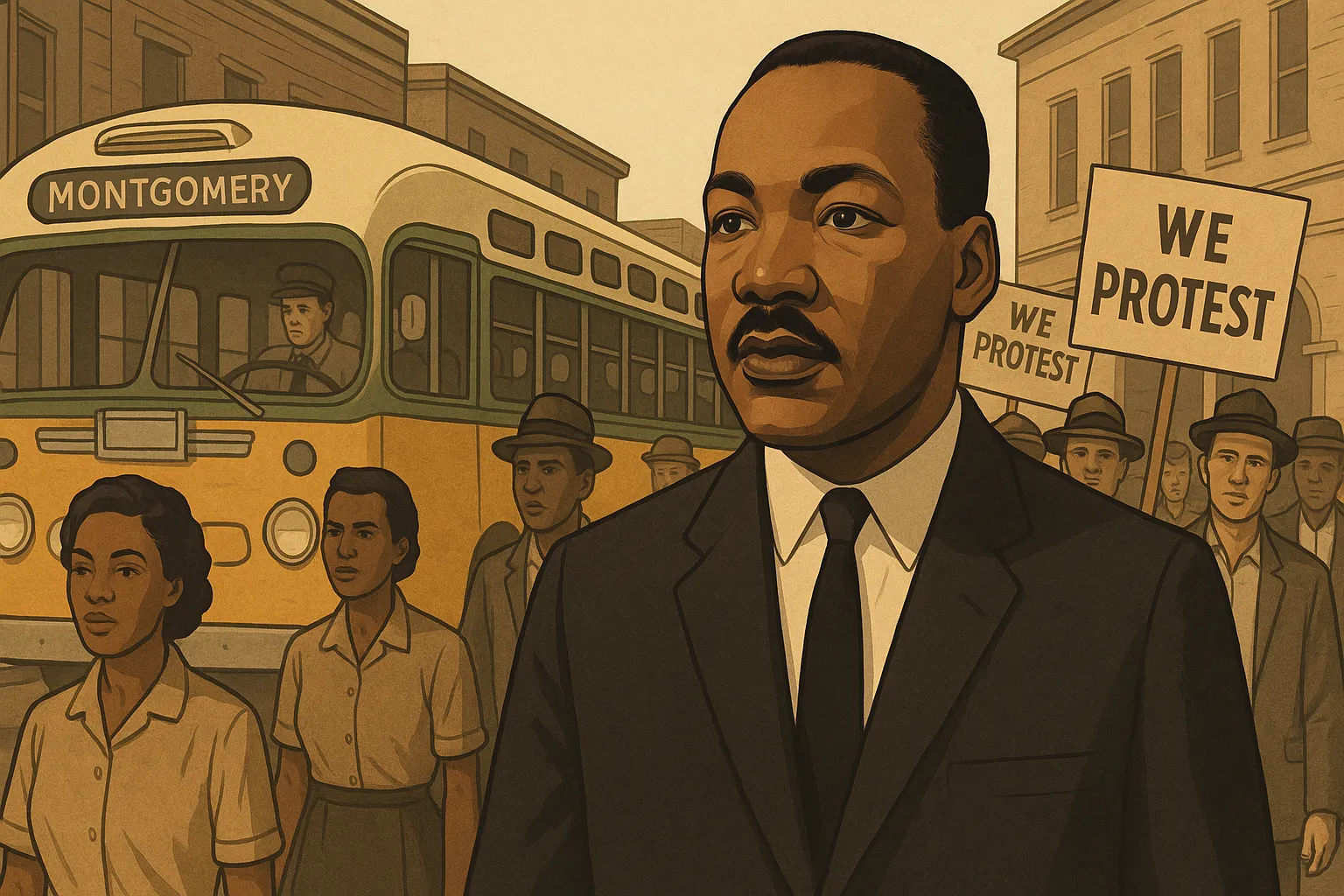
The opportunity for leadership came in December 1955, when Rosa Parks, a Black seamstress, was arrested for refusing to give up her bus seat to a white passenger in Montgomery, Alabama.
The incident sparked the Montgomery Bus Boycott, a 381-day protest led by King and organized by the newly formed Montgomery Improvement Association (MIA). The boycott paralyzed the city’s public transit system and drew national attention.
Despite facing death threats, bombings, and arrest, King maintained his commitment to nonviolence. His leadership and eloquence galvanized both Black and white supporters.
In 1956, the U.S. Supreme Court ruled that bus segregation was unconstitutional, marking the boycott as a critical victory for the burgeoning Civil Rights Movement and establishing King as a national figure.
Founding the Southern Christian Leadership Conference (SCLC)
Building on the momentum of Montgomery, King co-founded the Southern Christian Leadership Conference (SCLC) in 1957, an organization dedicated to coordinating nonviolent resistance across the South.
The SCLC united Black churches, clergy, and community leaders under the shared mission of dismantling segregation and achieving civil rights through peaceful protest.
King’s belief in the “Beloved Community”—a vision of a society founded on justice, equal opportunity, and love—became the guiding philosophy of the organization.
The Birmingham Campaign: Confronting Injustice
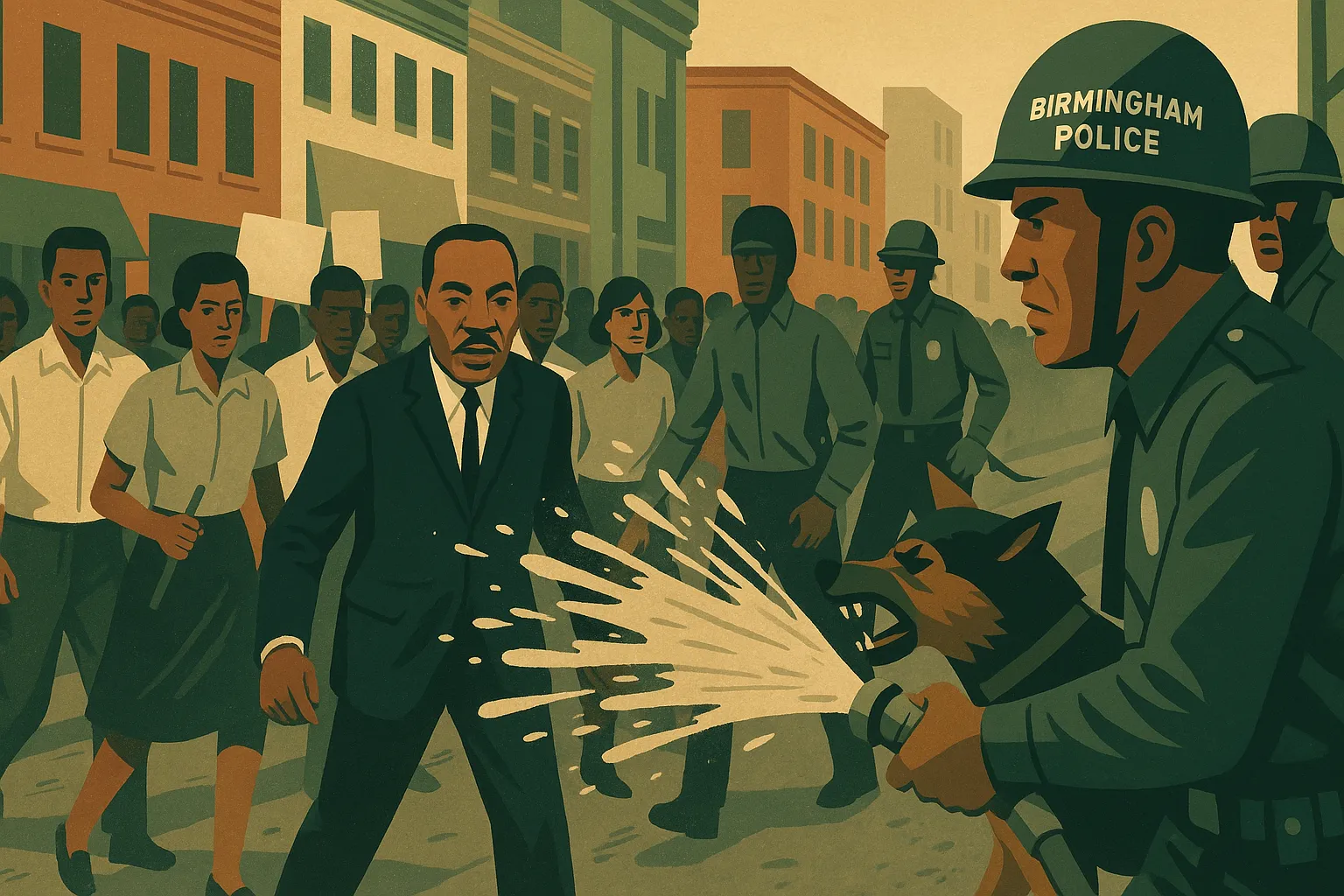
In 1963, King and the SCLC launched the Birmingham Campaign in Alabama, one of the most racially divided cities in the U.S.
The campaign used peaceful marches, sit-ins, and boycotts to challenge segregation ordinances. The movement faced violent resistance from local authorities led by Public Safety Commissioner Eugene “Bull” Connor, whose brutal tactics were broadcast nationwide.
During his imprisonment in Birmingham, King penned the seminal “Letter from Birmingham Jail,” a passionate defense of civil disobedience and a direct challenge to white moderates who urged patience rather than action.
The Birmingham Campaign became a turning point, galvanizing national support for federal civil rights legislation.
The March on Washington: “I Have a Dream”
On August 28, 1963, King delivered his most iconic speech during the March on Washington for Jobs and Freedom. Standing before over 250,000 people at the Lincoln Memorial, King delivered his historic “I Have a Dream” address.
“I have a dream that one day this nation will rise up and live out the true meaning of its creed:
‘We hold these truths to be self-evident, that all men are created equal.'”
The speech electrified the nation and cemented King’s role as the moral leader of the Civil Rights Movement. The event also exerted pressure on Congress to act, leading to significant legislative changes.
Civil Rights Act and Nobel Peace Prize
The efforts of King and countless activists led to the passage of the Civil Rights Act of 1964, outlawing segregation in public places and banning employment discrimination.
That same year, King became the youngest recipient of the Nobel Peace Prize at just 35 years old. In his acceptance speech, he emphasized the universality of the struggle:
“I accept this award today with an abiding faith in America and an audacious faith in the future of mankind.”
The Nobel Prize elevated King’s international stature and underscored the global significance of the American Civil Rights Movement.
The Selma March and Voting Rights Act
Despite significant progress, racial disenfranchisement persisted, particularly in the South. In 1965, King organized a campaign in Selma, Alabama, to protest voter suppression.
The marchers faced brutal attacks on “Bloody Sunday”, as state troopers beat peaceful demonstrators on the Edmund Pettus Bridge.
Television broadcasts of the violence shocked the nation and accelerated congressional action, culminating in the passage of the Voting Rights Act of 1965, one of the most transformative pieces of legislation in American history.
Poverty and Vietnam
In the final years of his life, King broadened his activism to include economic justice and opposition to the Vietnam War.
He launched the Poor People’s Campaign, advocating for economic rights and demanding systemic solutions to poverty. King argued that racial equality was meaningless without economic equality.
His opposition to the Vietnam War attracted criticism from political allies and strained his relationship with the federal government. Nevertheless, King remained steadfast, recognizing the interconnectedness of war, poverty, and racism.
Assassination in Memphis
On April 4, 1968, King traveled to Memphis, Tennessee, to support striking sanitation workers demanding fair wages and working conditions.
While standing on the balcony of the Lorraine Motel, King was fatally shot by James Earl Ray. The assassination sent shockwaves around the world, sparking riots, grief, and reflection.
King was only 39 years old at the time of his death, but his legacy had already been firmly established.
Legacy and Global Impact
Martin Luther King Jr.’s legacy transcends his era and geography:
-
National Holiday: In 1983, the United States established Martin Luther King Jr. Day, a federal holiday commemorating his life and work.
-
Global Symbol: King is celebrated worldwide as a champion of nonviolence, justice, and human rights.
-
Monuments and Memorials: The Martin Luther King Jr. Memorial in Washington D.C., unveiled in 2011, stands as a lasting tribute.
-
Educational Influence: His speeches, writings, and sermons remain central to the study of civil rights, ethics, and leadership.
-
Moral Example: King’s life continues to inspire activists fighting for justice, equality, and dignity for all.
Controversies and Challenges
While widely revered, King’s legacy has also faced scrutiny:
-
FBI Surveillance: J. Edgar Hoover’s FBI conducted extensive surveillance and harassment against King, attempting to discredit him.
-
Criticism from Allies: Some civil rights leaders criticized King’s opposition to the Vietnam War, fearing it would distract from domestic progress.
-
Incomplete Vision: Despite King’s efforts, systemic racism, economic inequality, and voter suppression remain persistent challenges.
Nevertheless, his vision for a just and equitable society remains a guiding beacon.
Martin Luther King Jr. in the 21st Century
In today’s world, King’s teachings remain more relevant than ever:
-
Racial Justice Movements: Movements like Black Lives Matter invoke his legacy in their fight against systemic racism.
-
Nonviolence: His commitment to peaceful protest serves as a blueprint for social change.
-
Global Inspiration: Leaders around the world continue to draw on his philosophy to challenge injustice in all its forms.
King’s legacy is not frozen in time but continues to evolve, offering timeless lessons in courage, humility, and moral leadership.
A Beacon of Hope for Humanity
Martin Luther King Jr. was not merely a man of his time; he was a prophet of moral clarity whose message transcends borders and generations. His unshakeable commitment to nonviolence, justice, and human dignity reshaped not only America but the conscience of the world.
As King famously said:
“The arc of the moral universe is long, but it bends toward justice.”
His life stands as a powerful reminder that ordinary people, armed with courage and conviction, can challenge oppression and transform societies.

